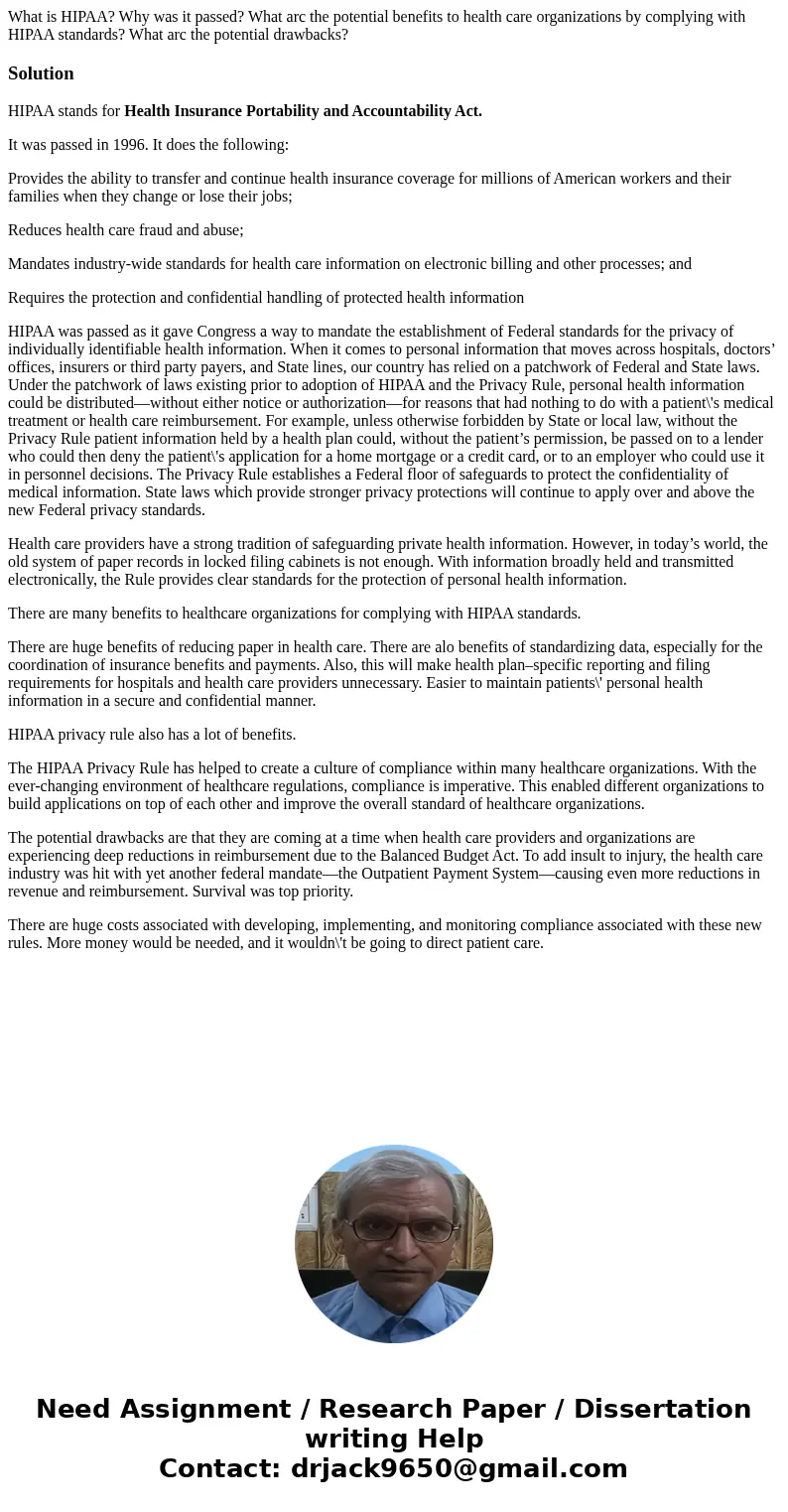What is HIPAA Why was it passed What arc the potential benef
Solution
HIPAA stands for Health Insurance Portability and Accountability Act.
It was passed in 1996. It does the following:
Provides the ability to transfer and continue health insurance coverage for millions of American workers and their families when they change or lose their jobs;
Reduces health care fraud and abuse;
Mandates industry-wide standards for health care information on electronic billing and other processes; and
Requires the protection and confidential handling of protected health information
HIPAA was passed as it gave Congress a way to mandate the establishment of Federal standards for the privacy of individually identifiable health information. When it comes to personal information that moves across hospitals, doctors’ offices, insurers or third party payers, and State lines, our country has relied on a patchwork of Federal and State laws. Under the patchwork of laws existing prior to adoption of HIPAA and the Privacy Rule, personal health information could be distributed—without either notice or authorization—for reasons that had nothing to do with a patient\'s medical treatment or health care reimbursement. For example, unless otherwise forbidden by State or local law, without the Privacy Rule patient information held by a health plan could, without the patient’s permission, be passed on to a lender who could then deny the patient\'s application for a home mortgage or a credit card, or to an employer who could use it in personnel decisions. The Privacy Rule establishes a Federal floor of safeguards to protect the confidentiality of medical information. State laws which provide stronger privacy protections will continue to apply over and above the new Federal privacy standards.
Health care providers have a strong tradition of safeguarding private health information. However, in today’s world, the old system of paper records in locked filing cabinets is not enough. With information broadly held and transmitted electronically, the Rule provides clear standards for the protection of personal health information.
There are many benefits to healthcare organizations for complying with HIPAA standards.
There are huge benefits of reducing paper in health care. There are alo benefits of standardizing data, especially for the coordination of insurance benefits and payments. Also, this will make health plan–specific reporting and filing requirements for hospitals and health care providers unnecessary. Easier to maintain patients\' personal health information in a secure and confidential manner.
HIPAA privacy rule also has a lot of benefits.
The HIPAA Privacy Rule has helped to create a culture of compliance within many healthcare organizations. With the ever-changing environment of healthcare regulations, compliance is imperative. This enabled different organizations to build applications on top of each other and improve the overall standard of healthcare organizations.
The potential drawbacks are that they are coming at a time when health care providers and organizations are experiencing deep reductions in reimbursement due to the Balanced Budget Act. To add insult to injury, the health care industry was hit with yet another federal mandate—the Outpatient Payment System—causing even more reductions in revenue and reimbursement. Survival was top priority.
There are huge costs associated with developing, implementing, and monitoring compliance associated with these new rules. More money would be needed, and it wouldn\'t be going to direct patient care.

 Homework Sourse
Homework Sourse